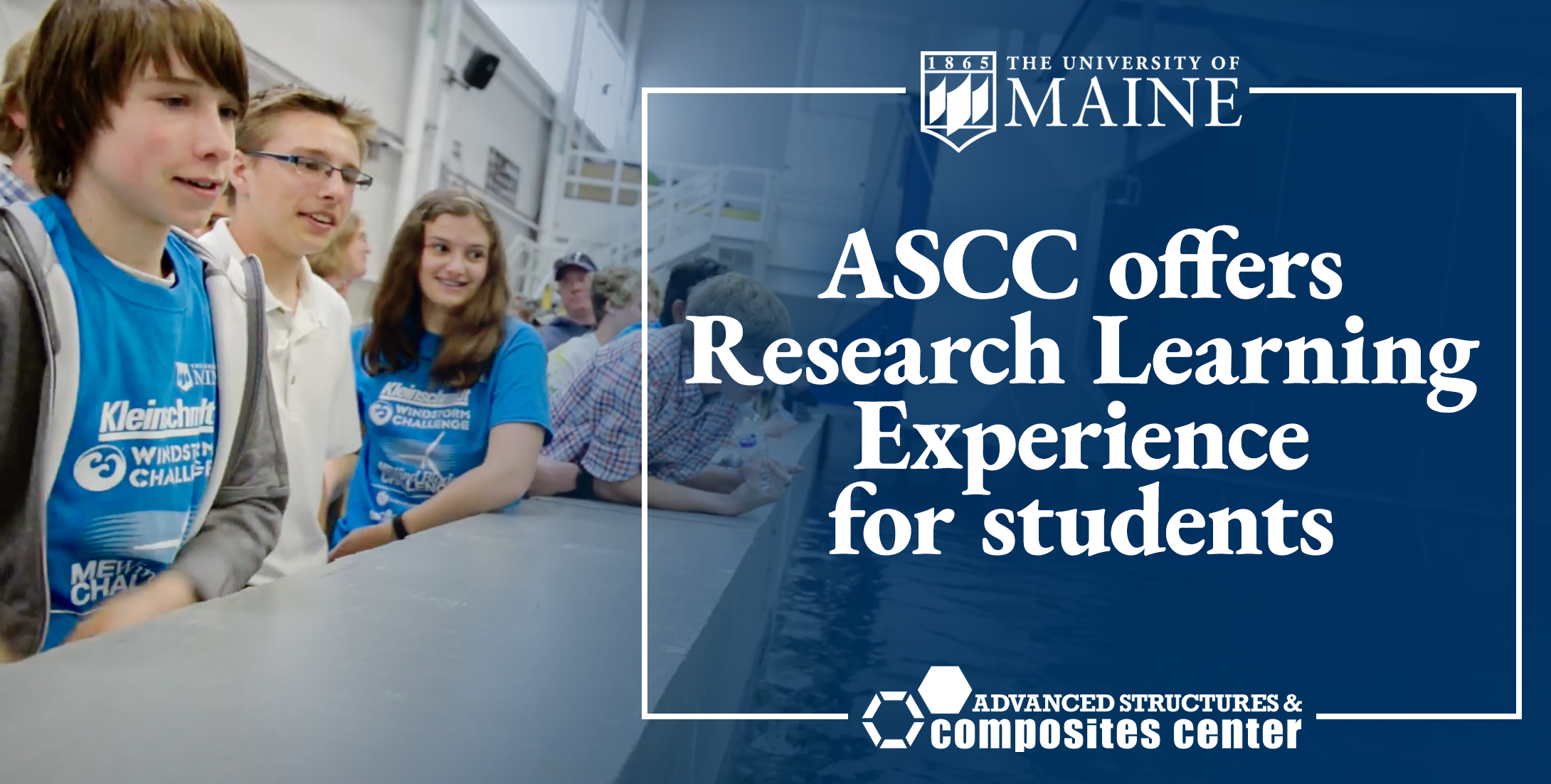
ASCC offers Research Learning Experience for students
ASCC offers Research Learning Experience for students
Orono, Maine – Through the University of Maine’s Research Learning Experiences (RLE), students have the ability to explore the engineering design process in 3D printing and floating offshore wind.
RLE courses provide students with a head start on their careers through the opportunity to develop professional relationships with faculty members and staff, form learning communities with peers, and by offering a window into the work that is involved in the industry in which they are interested. There are many courses designed for students of all majors, with the main goals being exploration and discovery of skills and interests.
Instructed by Dr. Keith Sharp and Dr. Rebecca Fisher, students who enroll in a RLE course at the ASCC will learn and explore the engineering design process required in additive manufacturing and offshore wind. Through team design tasks, students cooperate and collaborate to investigate problems and create innovative solutions.
Enrolled students will spend the first few weeks focusing on additive manufacturing, by learning and applying the design and manufacturing process of 3D printed beams. The beams are produced and tested on-site at the ASCC, and students are able to rework their beams to improve durability.
Students will then shift to offshore wind by building floating offshore structures for wind energy. With everyday recycled items like bottles, pool noodles, and PVC pipes, students utilize nonstandard materials to create innovative designs. These structures are then tested in the pool in Crosby Hall, and redesigned until they are able to withstand the force of a blowing fan–simulating a wind farm load–without falling over.
“The one-hour lab class is intended to pique their interest in engineering among the more formal engineering classes that overwhelm them in their first year,” explains Sharp. “The RLE class lets them get their hands dirty doing engineering tasks that interest them.”
Through teamwork and hands-on experience in the Center’s state-of-the-art labs, students are exposed early to the skills and knowledge necessary to succeed in engineering after graduation. The ASCC is also actively working on allowing more students from different academic backgrounds the opportunity to participate in a RLE course focused on additive manufacturing, mechanical testing, offshore wind, and deep technology entrepreneurship, where students learn how to develop innovative engineering and technology solutions to address widespread problems and enact change in fields such as clean energy, infrastructure, and affordable housing.
Besides connections, experience, and class credit, RLE also offers 21st Century Skill Badges. These badges are a type of microcredential that certifies students’ specific skills gained through their RLE course, allowing students to stand out on their resumes and visibly communicate their expertise and achievements. For students who take their RLE course at the ASCC, they receive the Creative Problem Solving Skill Badge, certifying that they are equipped to approach and solve problems in new and innovative ways.
ASCC has historically supported students throughout their time on the University of Maine Orono campus. The Center is committed to providing interdisciplinary research opportunities for both undergraduate and graduate students; the ASCC has employed more than 2,700 students from over 30 academic departments and adds new faces to the team every year. One of the ASCC’s mottos is “Students First,” a philosophy that emphasizes the importance and prioritization of students and their contributions at the Center.
The ASCC is committed to educating and training workforce leaders of the future, with various K-12 opportunities available and more on the way, such as the annual Matthew R. Simmons Windstorm Challenge for middle and high schoolers.
For more information on the ASCC’s RLE and on microcredentials, contact Dr. Rebecca Fisher at rebecca.a.fisher@maine.edu.
Contact: Grace Bradley, Grace.a.Bradley@maine.edu
